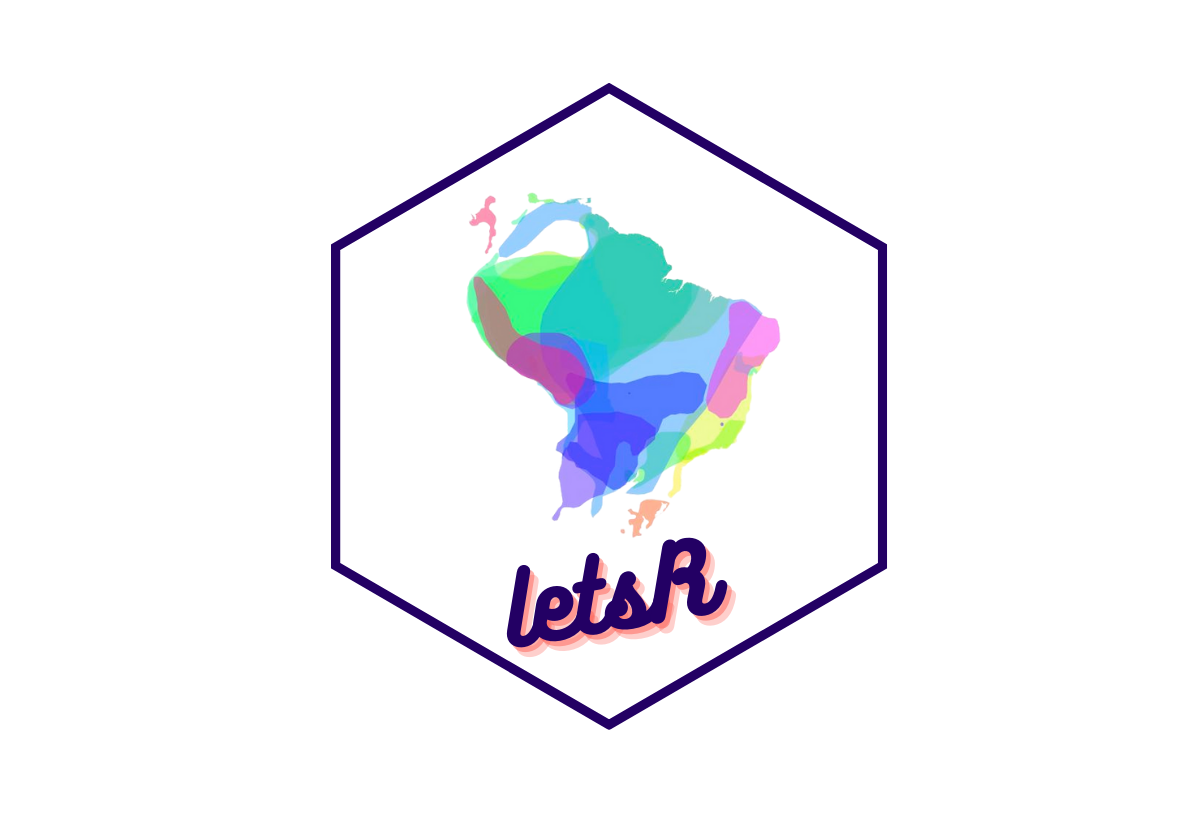The hardware and bandwidth for this mirror is donated by METANET, the Webhosting and Full Service-Cloud Provider.
If you wish to report a bug, or if you are interested in having us mirror your free-software or open-source project, please feel free to contact us at mirror[@]metanet.ch.

The letsR package is being developed to help researchers handle, process, and analyze macroecological data. It aims to integrate these methodological processes into a single software platform for macroecological analyses. The package’s main functions allow users to build presence-absence matrices, the primary analytical tool in macroecology, from species’ geographical distributions and merge them with species’ traits, conservation information and spatial environmental layers. In addition, other packages’ functions enable users to summarize and visualize data from presence-absence matrices.
All functions in this package use a prefix and a suffix separated by
a dot; the prefix refers to the package’s name, and the suffix to the
actual function. This nomenclature avoids confusion with potentially
similarly-named functions from other R packages. For instance, the letsR
function used to create presence-absence matrices is called
lets.presab (but see also lets.presab.birds
and lets.presab.points), whereas the one used to add
variables to a presence-absence matrix is called
lets.addvar.
The package’s primary functions create and work on a particular S3
object class called PresenceAbsence. Such
PresenceAbsence object class allows storing information
beyond presence-absence data (e.g. user-defined grid-cell system) and
using the generic plot, summary and
print functions of R. Also, some package’s functions allow
the user to input customary R objects (e.g. vector,
matrix, data.frame.
The letsR package is in continuous development, and suggestions are more than welcome!
We hope you enjoy it and find it helpful.
https://besjournals.onlinelibrary.wiley.com/doi/abs/10.1111/2041-210X.12401
Install letsR from CRAN
install.packages("letsR")
library("letsR")Install letsR developers version from github
install.packages("devtools")
library(devtools)
install_github("macroecology/letsR")
library(letsR)OBS.: To download the developers version you will need to have the git software installed (https://git-scm.com/). If you are a windows user you will also need to download the Rtools (https://cran.r-project.org/bin/windows/Rtools/).
Due to changes in the IUCN API and limitations in data distribution established by IUCN terms of use, we are no longer maintaining the functions lets.iucn, lets.iucn.hist and lets.iucn.ha. These functions will be removed from the package in the next version. We apologize for any inconvenience this may cause.
These binaries (installable software) and packages are in development.
They may not be fully stable and should be used with caution. We make no claims about them.